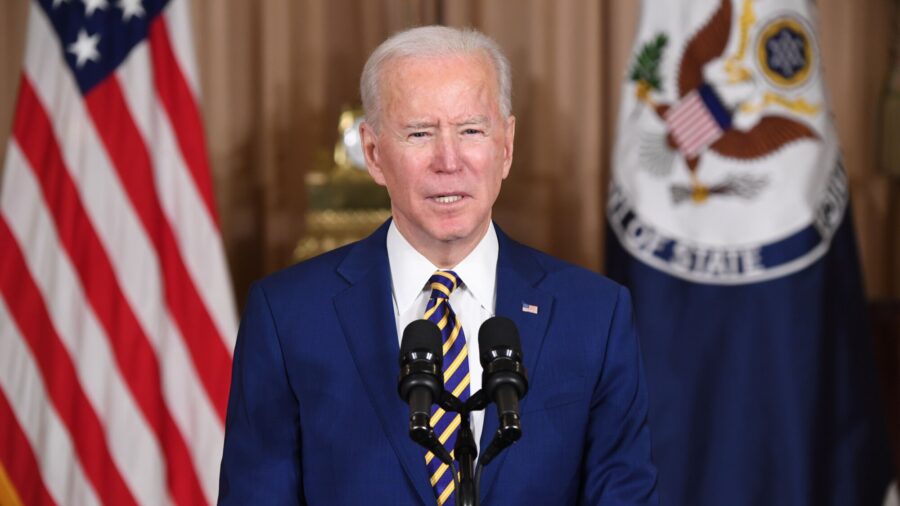President Joe Biden is backing away from the push to include a minimum wage hike in the CCP virus relief bill that Democrats are ramming through Congress, after key lawmakers signaled they no longer support it.
“Well, apparently, that’s not going to occur because of the rules of the United States Senate,” Biden said in an interview partially released Friday by CBS.
“I put it in, but I don’t think it’s gonna survive,” Biden added.
Democrats in the House of Representatives and the Senate on Friday passed a budget resolution that enables them to plug in a relief package that’s expected to hew closely to Biden’s $1.9 trillion proposal. Biden’s package includes a $15 minimum wage. The federal minimum wage is currently $7.25, though many states have their own wage floors.
During an overnight session, the Senate adopted an amendment to not raise the minimum wage during the CCP (Chinese Communist Party) virus pandemic.
“Tonight, I got the entire Senate—Democrats and Republicans—to agree not to hike the federal minimum wage to $15 per hour during a global pandemic, which would kill jobs and destroy small businesses,” said Sen. Joni Ernst (R-Iowa), who introduced the amendment.
The amendment was nonbinding but showed the danger in placing the provision in the final package, since Democrats can’t afford a single defection in the upper chamber because of their razor-thin majority.

Sen. Bernie Sanders (I-Vt.), a self-described socialist who has long pushed for a wage hike, said he supported not raising the wage during the pandemic. He has introduced separate legislation which would raise the wage gradually over five years. “That is what I believe we have got to do,” he said.
Biden said he still backs a minimum wage increase.
“All the economics show, if you do that, the whole economy rises. I am prepared, as president of the United States on a separate negotiation on minimum wage, to work my way up from what it is now, which is—look, no one should work 40 hours a week and live below the poverty wage. And if you’re making less than $15 an hour, you’re living below the poverty wage,” he told “CBS Evening News.”
Sen. Joe Manchin (D-W.Va.) had said before the vote he didn’t approve of raising the wage as high as $15 an hour, already imperiling a hike.
Republicans’ counter-proposal to Biden’s plan doesn’t include a minimum wage increase. Democrats are, for now, planning to pass Biden’s package without Republican support using a budgetary tool that avoids the 60-vote requirement in the Senate. Democrats hold a majority even though each party has 50 members, because Vice President Kamala Harris can cast tiebreaking votes in her role as president of the body. Harris did so for the first time on Friday to pass the budget resolution.
Republicans have criticized the amount Democrats want to spend. Congress has already doled out over $5 trillion for aid during the pandemic, starting with the mammoth $2.2 trillion CARES Act in March 2020. The federal debt rose by $4.2 trillion as of Sept. 30, 2020, over the previous year, due largely to the CCP virus packages, according to the Government Accountability Office.
Even within the Democratic Party, some say the package should be more targeted. Larry Summers, a former top economic adviser during the Obama administration, said in an op-ed that the aid package passed in 2009 to respond to the recession was too small but Biden’s package is too large.
Unemployment is falling, rather than skyrocketing as it was in 2009, and a number of states have seen a return to pre-pandemic levels of employment. Summers also expects a further strengthening of demand as consumers “spend down the approximately $1.5 trillion they accumulated last year as the pandemic curtailed their ability to spend and as promised further fiscal measures are undertaken.”
Biden told reporters earlier Friday that he feels the legislation passed to stoke the economy during the recession “wasn’t quite big enough,” adding, “We need an answer that meets the challenge of this crisis, not one to fall short.”
From The Epoch Times

